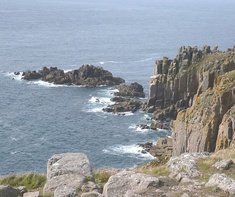Featured Quizzes
User Quizzes
Create Quiz
Data and Charts
Badges and Games
About JetPunk
JetPunk Shop
Dark Mode

10 Westernmost Countries in Europe
Can you name the ten westernmost European countries?
Not including overseas territories
Rate:
Featured Quiz
Last updated: October 27, 2016
You have not attempted this quiz yet.
More quiz info >>
| First submitted | October 26, 2016 |
| Times taken | 112,648 |
| Average score | 90.0% |
| Rating | 4.94 |
2:00
Enter country here
0
/ 10 guessed
Time Used
00:00
Best Time
00:00
The quiz is paused. You have remaining.
Scoring
You scored / = %
This beats or equals
% of test takers
also scored 100%
The average score is
Your high score is
Your fastest time is
Keep scrolling down for answers and more stats ...
|
|
New and Popular
Save Your Progress
Directional Geography
Quiz series by Quizzer6794
...
Copyright H Brothers Inc, 2008–2024
Contact Us | Go To Top | View Mobile Site

Dutch Guyana became Suriname, and British Guyana became just Guyana, where as French Guiana stayed a department of France.
However, the definition of 'overseas territory' can be interpreted to include such things, depending on which side of the bed you got out of, so maybe it should read 'Not including overseas territories, regions, departments etc.', or make France #1.
There doesn't appear to be a definition of 'overseas territory' in any established dictionary that I can find, other than one that applies only to British overseas territories (https://www.oxfordlearnersdictionaries.com/us/definition/english/overseas-territory)
Links:
https://en.wikipedia.org/wiki/Special_member_state_territories_and_the_European_Union
https://en.wikipedia.org/wiki/Overseas_department_and_region
but a clearer disciption/caveat would be helpfull yes.
Jan Mayen is to Norway as Hawaii is to the U.S.
The Azores are to Portugal as Guam is to the U.S.
This is a pretty rough analogy since no two territories are really the same, but it gets the point across.
I'm really not sure why Jan Mayen would count and not Azores
Jan Mayen is to Norway as Hawaii is to the U.S.
The Azores are to Portugal as Guam is to the U.S.
This is a pretty rough analogy since no two territories are really the same, but it gets the point across.
Several reasons: #1 Geography & history; #2 Current population (ethnically and linguistically difficult to distinguish from mainland for an outsider); #3 geologically, as already stated by others, Azores are at junction of african and European plates with plurality in Europe #4 no devolution or even sense of self-rule/home rule that is above and beyond what is seen in portugal's mainland administrative subdivisions.
It is so much more west than the rest of the countries and
Despite being VERY far from mainland Norway, Jan Mayen is a fully integral part of Norway, so it counts.
Definitely confusing for us quiz-takers, but the quiz author is correct here on including Norway and excluding Denmark.
Greenland is more west than any if these countries
Please comment back!!